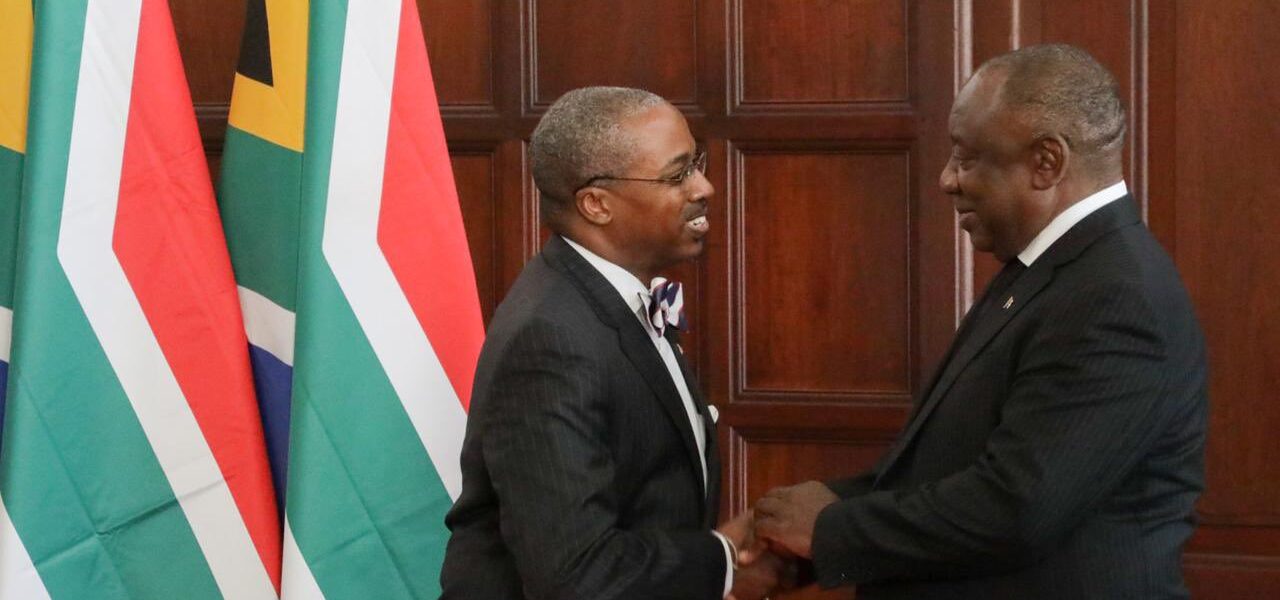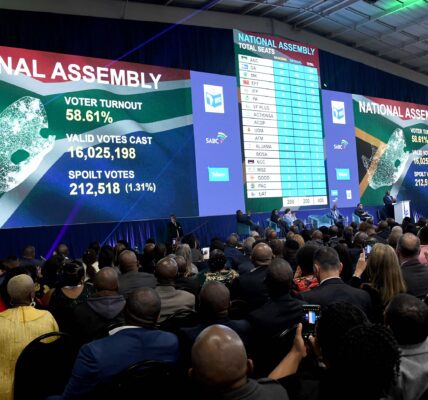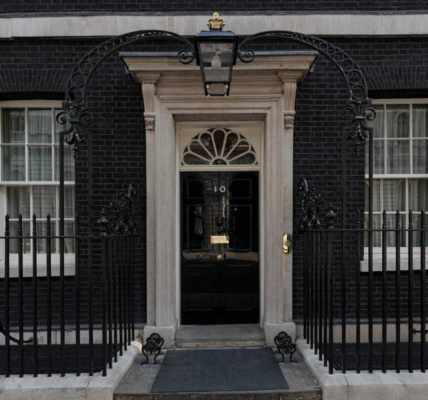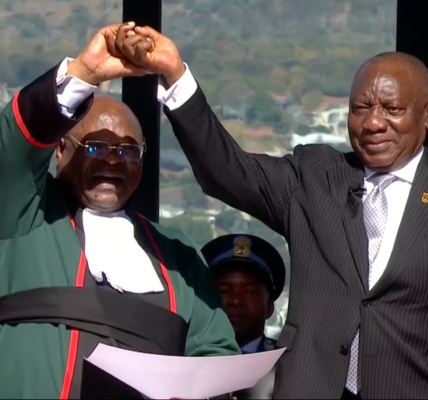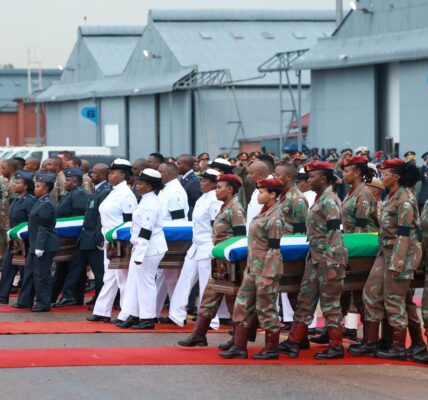US Ambassador Brigety: There is a strong reservoir of goodwill towards South Africa in Washington
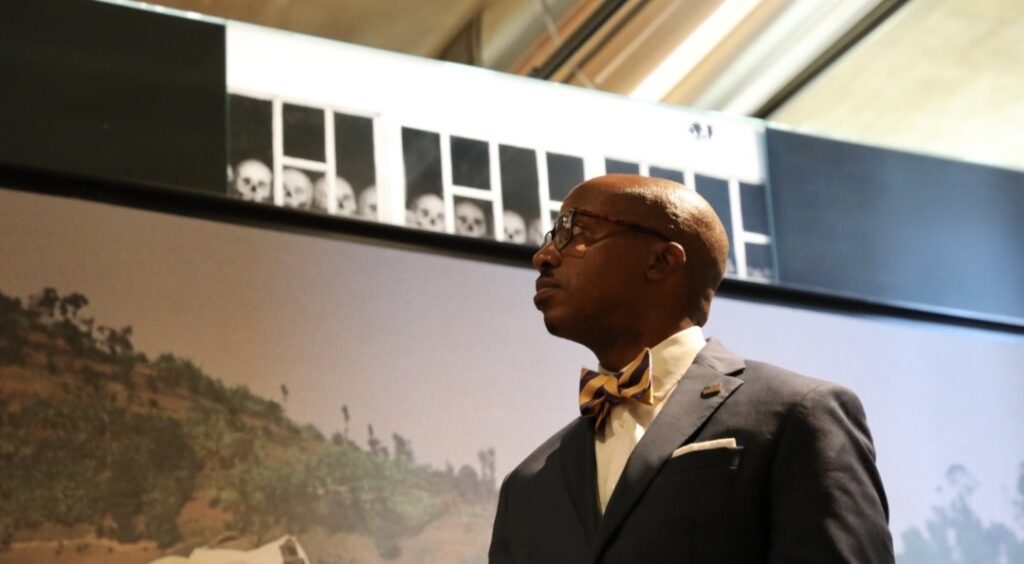
Outgoing US Ambassador Reuben Brigety shared his perspective on the US-South Africa relationship and reflected on his time in the country in an interview with Max du Preez, which we are republishing with permission from Vrye Weekblad. Brigety acknowledged the prevalent anti-American sentiment in South Africa, particularly linked to the Lady R Russian ship controversy, but he disagreed with the perception that South Africans harbour widespread hostility toward the US. He highlighted that despite differences, there remains a strong reservoir of goodwill towards South Africa in Washington and that he believes Washington’s relationship with South Africa has strengthened during his tenure. He praised South Africa’s commitment to its democratic ideals, particularly its unique ability to reconcile and move forward, citing President Cyril Ramaphosa’s response to his party’s electoral setback as a remarkable example of the country’s political resilience. Brigety also expressed admiration for South Africans’ forthrightness in confronting the trauma of apartheid while striving to build a more inclusive future.
US envoy on anti-American sentiment and what makes SA special
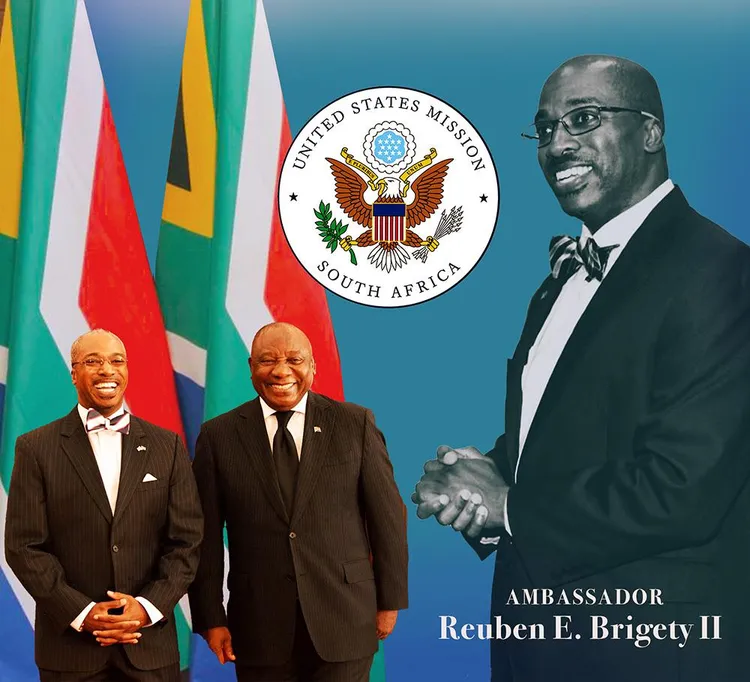
The perceived animosity towards the US among many South Africans does not tally with the facts, outgoing US ambassador Reuben Brigety tells MAX DU PREEZ. He says there is a strong reservoir of goodwill towards the country in Washington that should be explored though robust engagement with the US Congress.
Say “Ambassador Brigety” and South Africans think of the Lady R Russian ship debacle of December 2022, and negatively mostly.
That’s a real pity, because Brigety (51) is an energetic, super bright, engaging diplomat, an “old Africa hand” and Afro-optimist who served as assistant secretary of state for Africa and has a distinguished academic CV. Remember his name.
I’d always seen him dressed very smartly, with a signature bow tie, so I dug up an old black linen jacket to look vaguely respectable for our meeting at the Cape Grace Hotel on the V&A Waterfront. And there he was in a golf shirt, chinos and loafers.
In my time I have interviewed quite a few ambassadors and foreign ministers, but few could combine the species’ painful diplomatic correctness with some proper human reactions like Brigety. He almost succeeded in avoiding the typical academic’s precious phraseology.
He and his family had “lots of fun” during his tenure in South Africa, he says. “South Africans are sports-loving people, and so are we,” he says, adding that he did a lot of scuba diving around our shores.
He’s rather in awe of the people of South Africa. “This beautiful phrase of ‘we will find each other’ is the one thing that I will take from South Africa. We don’t say that in the United States.
“SA is very forthright about telling the history of apartheid, which is something that has taken my country a time to get to,” he says.
“There is something beautiful about South Africans saying we are not forgetting the trauma, but we’re making a firm decision to move forward together, as articulated by the Freedom Charter and founding father Madiba’s vision of a rainbow nation. Those are very powerful ideals that have real currency.”
My predictable question to a non-South African: Is there something like a South African spirit; do we as a people have a distinct character?
“I absolutely believe that. Example: In the aftermath of the May election when pres. Cyril Ramaphosa as president of the ANC saw his party’s support collapse to 40% – if that had happened in any other parliamentary democracy, the leader of the party would be out the next day.
“The fact that pres. Ramaphosa held it for himself but also saw something unique in the South African political character and was able to take that moment and a) concede a loss for the ANC which is extraordinary, it was a huge moment; and b) in a grand Mandela-like gesture open the door to a GNU [government of national unity], harking back to 1994 and see 10 other political parties take him up on it, and a governing system that now appears to be working, put together in less than two weeks. It’s extraordinary, I literally cannot think of any other place where that has happened, or where it could happen.
“So yes, I do think from an analytical perspective there is something to be said for, notwithstanding all the worries in the system, when it comes down to it, Saffers, if I may use the term, will find each other. And I think that is something really special.”
Brigety sounds like a bit of a Ramaphosa fan. He says on the formation of the present GNU: “I think you have to pres. Ramaphosa enormous personal credit for that decision. Even if one says of course he had to concede, it was not a forgone conclusion that the ANC would form a GNU. It could have gone with EFF, even MK, or a minority government, the way most other countries would have gone. Your GNU is unheard of.”
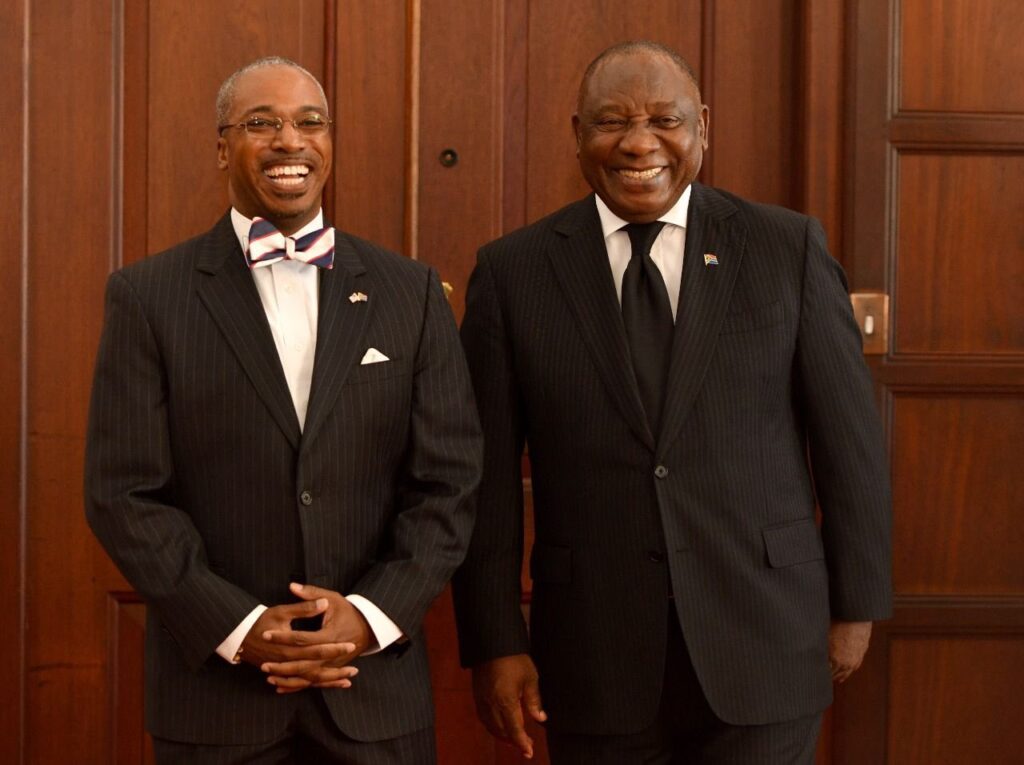
(Source – US Embassy SA on X)
Brigety says the only disappointing and concerning thing about South Africa is the extent to which the levels of inequality have endured 30 years after we became a democracy. “The people made clear in the election their frustrations, challenges of the economy, service delivery and they expect a change, which is going around the world.”
What should South Africa do about it? Is it our fate?
“No, I don’t think it is your fate. Madiba said it isn’t possible until its done. My own country has struggled very deeply with these kind of questions. After the civil war for a century there was the so-called Negro question: what are we to do with this mass of humanity that had been so fundamentally dispossessed. Is it even possible?
“The idea that you would see a Barack Obama or a Condoleezza Rice or any of these real champions of the American way of life from all political walks of life that happened to be African American had ascended to great heights was for sure unthinkable 150 years ago and most unimaginable when my parents were kids.
“But I think in the context of South Africa it is going to require a different approach in governance. That’s the message that voters up and down the spectrum were sending to parliament.
“In a democracy the price of being a free people is that nobody is going to come to save us. We have to do this ourselves. And there is no problem South Africa is faced with that is not being faced by other countries, on the African continent or elsewhere. In some cases, like with load shedding, South Africa had overcome challenge by itself.
“The demand is clear: a growing economy, jobs, a more equal society. My hope is that the political leadership will heed that.”
Brigety appears proud of his achievements as ambassador the last two years. The US and South Africa had been talking past each other and Washington didn’t do enough to communicate effectively.
“In many ways I’m grateful that I in my tenure both sides of that relationship had come to reappreciate the strategic importance of the other. Which is why we saw the growth in engagement on both sides. About one third of the senate has been to South Africa since I’ve been here. Pres. Ramaphosa has been to the White House, and many, many South African leaders visited Washington.”
But later on in the conversation Brigety’s frustrations with the ANC become a little more apparent.
“The world has changed a great deal of last 30 years. In the spirit of ‘we find each other’, we have continued to try and engage the ANC leadership productively. That has been challenging in the last 10, 15 years, especially during my tenure.
“You can’t clap with one hand. It takes two sides. My government has demonstrated its willingness to back South Africa fully. It is in the interests of the US that South Africa succeeds as a democracy that can deliver for its people.
“But the cardinal rule of diplomacy is reciprocity. And so my hope, particularly as we go into a new political dispensation in US, is that there will be greater recognition among many at the political establishment in South Africa of the value of this partnership.”
Why is it so hard for Americans to understand the preference among many or most South Africans to be non-aligned internationally, to not want to simply sing in the West’s choir?
“We have no issue with South Africa being non-aligned. Whatever foreign policy South Africa chooses for itself, it’s a sovereign country. The US is also a sovereign country. The whole point of foreign policy is to be able to make your decisions about how you are going to engage the world while anticipating what other countries are going to do in response to your decisions. Under the best of circumstances one makes those decisions in a way that elevates your interest together.
“We have no problem with South Africa being non-aligned, but we need you to be successful in your non-alignment. That is an ongoing conversation.”
What does the ambassador make of the almost instinctive antipathy so many South Africans have towards the US and the West, while having an affinity for countries like Russia, China and Cuba?
“I suppose that I can intellectually follow the train of thought but I disagree with it and I think it is belied by the actual fact pattern. I have often said often the US was on the wrong side of history regarding the fight against apartheid for far too long – until a senator named Joseph Biden came to South Africa in 1985 and went back to Washington convinced of the moral evil of apartheid and dedicated himself to fight against it.”
Brigety says one of the reasons the US was so slow to recognise the righteousness of the struggle against apartheid was that they were so slow to recognise racial injustice at home.
“My informed view is that average South Africans have a favourable view of average Americans,” he says.
“Rather than the antipathy towards the US I actually think we have an awful lot more in common if we take a clearer view of our respective histories together.”
He says the US has since the transition to democracy been “four-square” behind democratic South Africa. The US is the only trading partner to offer South Africa trade access through Agoa and South Africa is the only member of the Group of 20 that gets this kind of special deal. The US has committed more than $20 billion to fight the HIV/Aids epidemic in South Africa.
I kept my undiplomatic question for last. Was his statement on what the Russian ship Lady R was really doing in Simon’s Town a mistake?
“I have no comment on that.”
I had to ask, even knowing what the answer would be.
As we said goodbye, I asked what he was going to do next. Politics?
“I’m going to throw the bow tie away and try pole dancing,” he joked.
As I said, remember his name: Reuben E. Brigety II from Jacksonville, Florida.
♦ VWB ♦
BE PART OF THE CONVERSATION: Go to the bottom of this page to share your opinion. We look forward to hearing from you.

